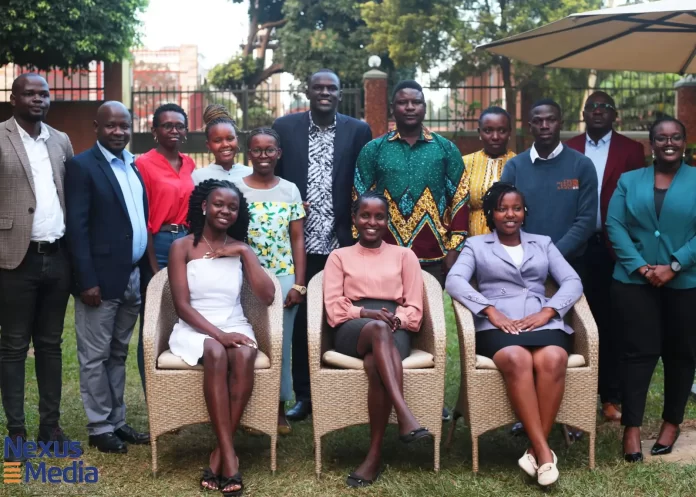
Environmental activists have urged the Ugandan government to push for subsidies on gas by supporting policies and subsidized rates to companies importing gas, but also offer tax waivers to companies extracting gas so that it can be affordable for people to use as an alternative for charcoal and firewood for cooking.
During a Climate Change Baraza held at Nob View Hotel in Ntinda on July, 20, 2023, with the topic Climate change “Mitigation or Adaptation” activists from the Civil Society and different universities called upon government to push for policies which will prohibit deforestation and punish environmental degradation.
Frederick Musimenta, an environmental activist and Co-founder at Uganda Dialogue Arena said that, in Uganda alone, over 94% of all households use charcoal, whereby some households use charcoal to supplement on gas whereas the majority use charcoal alone.
Adding that, this has contributed to massive deforestation to provide charcoal as a solid fuel for cooking.
“Unfortunately, there is a wrong perception by the public about the gas as being very dangerous and explosive yet if handled well gas is one of the most environmentally friendly forms of energy compared to our traditional fuels like charcoal and firewood,” Musimenta said.
Donald Maasa, an environmental lawyer and activist said that, Uganda has gas resources in the Albertine region and if the country can offer incentives such as tax holidays to investors to extract gas resources, this could make gas more affordable in Uganda thus a better option for Charcoal and firewood in both urban and rural areas.
“Also important, having intentional tax waivers on gas imported into the country which could relatively make gas more affordable and thus an alternative for charcoal,” Maasa noted.
On mitigation and adaptation, Jude Kamuganga, an environmental activist and magistrate said that, Uganda is past mitigation but now on adaptation, and it’s how we adopt to the changes that matters.
“As an activist, this has to be practical. How many trees have you planted, how do you dispose your plastics, how often do you sensitize the people around you on the effects of degradation?” Kamuganga asked.
However, Dr. Dastan Bamwesigye, a Natural Resources Economics Assistant Professor at Mendel University, Czech Republic said that poverty affects climate change and vice versa.
“You can’t isolate one from the other, these two are inter-connected and this means that, solving climate change has the potential of eradicating some of the most serious problems such as; climatic disasters, hunger, energy poverty, unemployment and illegal immigration from the global south and other developing nations,” Bamwesigye stated.
Climate change still remains a big problem in Sub Saharan African, and Uganda in particular is experiencing significant impacts of climate change, which include changing weather patterns, drop in water levels, and increased frequency of extreme weather events like floods as well as drought, whose social economic impacts make communities very vulnerable.
The Climate change Baraza on Mitigation or Adaptation was hosted by Uganda dialogue arena in partnership with Energy Analytical, and Nexus media. The conversation will be happening monthly both online and physical meetings.














